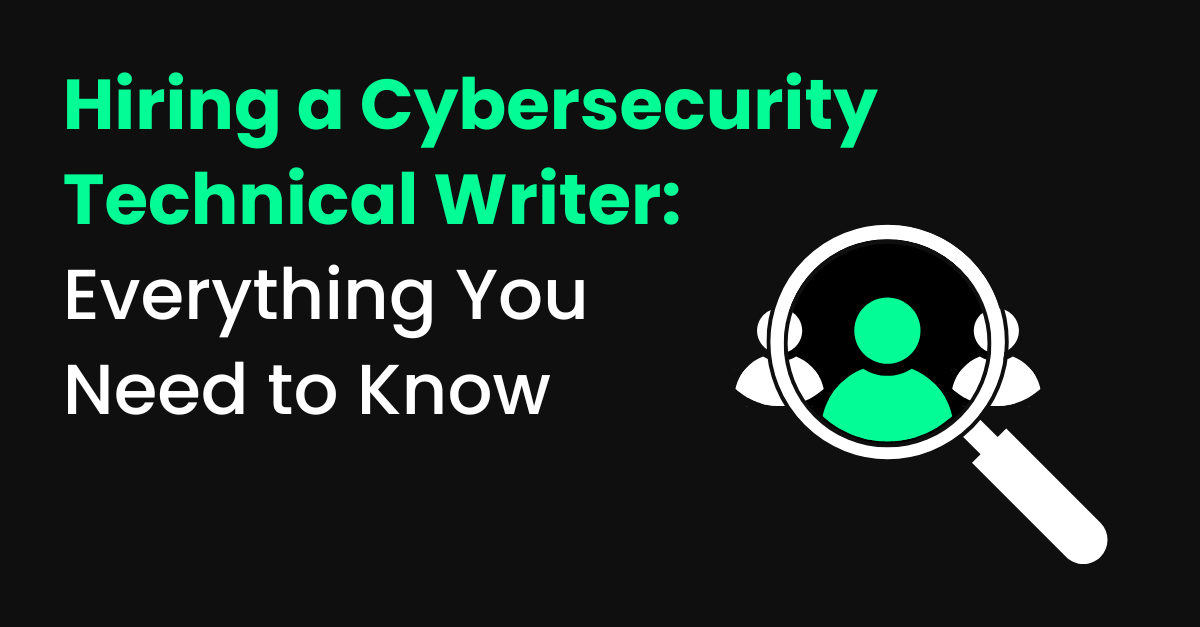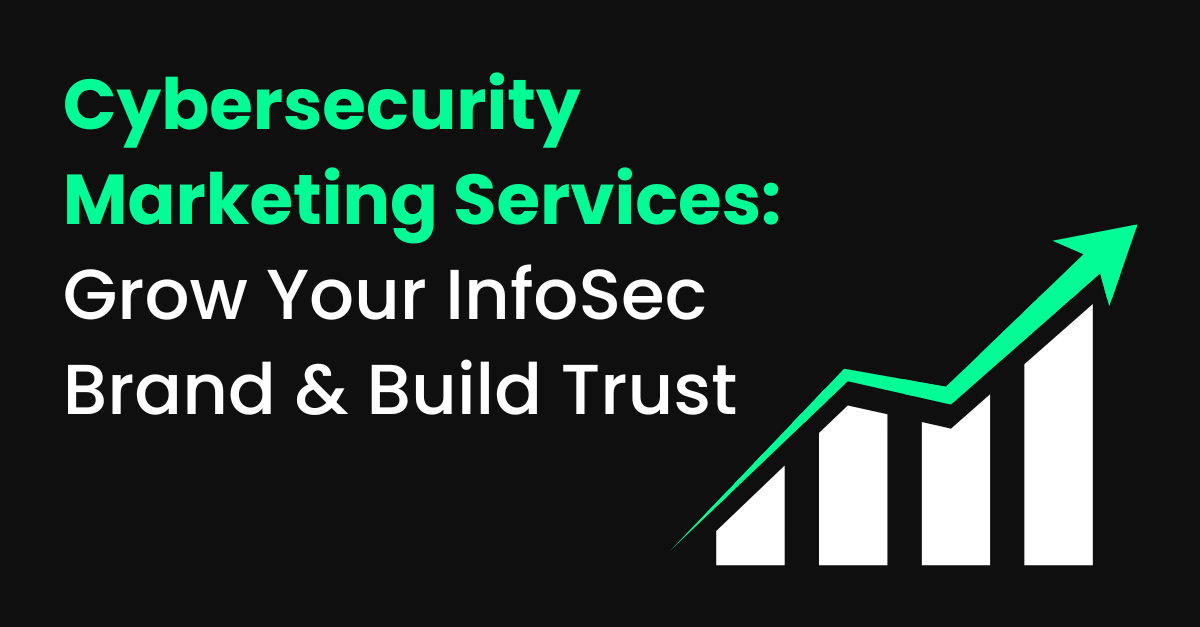Introduction
When it comes to cybersecurity, words matter just as much as firewalls. Whether you’re launching a new security product, building compliance documentation, or helping customers understand your processes, the right writer can make all the difference in providing useful resources. A cybersecurity technical writer doesn’t just put jargon on a page; they bridge the gap between deeply technical experts and the rest of the world. In this guide, we’ll walk through everything you need to know about hiring one: what they do, why they’re invaluable to your business, and how to find the perfect fit for your team.
What is a Cybersecurity Technical Writer?
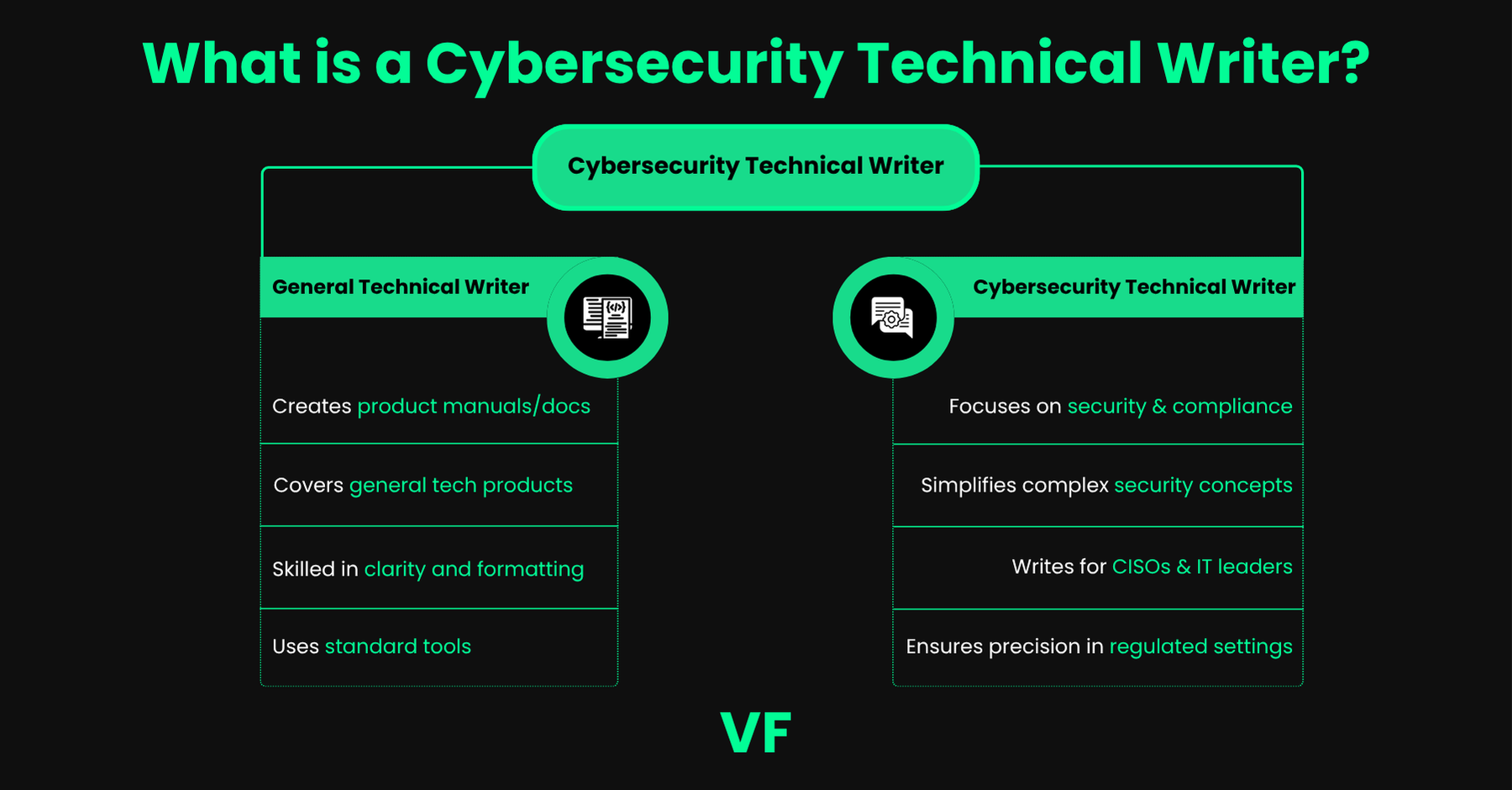
Let’s start with the basics a cybersecurity technical writer is someone who turns complex cybersecurity concepts into content that real people can actually understand. Think of them as translators between your technical teams and the rest of your organization.
They create clear, accurate documentation such as training materials, user manuals, and technical reports that explains security processes, network security tools, and data protection practices in a way that your clients, employees, and customers can easily follow. In short, they help your business communicate security measures effectively and build trust through strong, well-written technical documentation.
Unlike general technical writers, cybersecurity technical writers dive deep into the cyber security world. They understand frameworks, industry standards, and regulations that keep organizations safe from cyberattacks and vulnerabilities.
Their work goes far beyond describing software features or system specifications it’s about showing how security fits into every layer of your business, addressing potential risks . They might write white papers, installation guides, or functional descriptions that help teams implement best practices and stay compliant. That’s what makes their expertise so valuable they know how to balance technical depth with clarity.
What truly distinguishes a great technical writer in the cybersecurity space is their ability to bridge the gaps between people, systems, and processes. They assess information carefully, communicate with subject matter experts, and produce documents that are accurate, engaging, and aligned with your organization’s goals.
With the right knowledge and experience, they help businesses safeguard their digital assets, guide teams through secure practices, and support long-term success. Whether your company is growing rapidly or needs assistance with managing internal security documentation, a skilled cybersecurity technical writer is a valuable investment that yields significant benefits in clarity, confidence, and compliance.
Why Your Business Needs a Cybersecurity Technical Writer
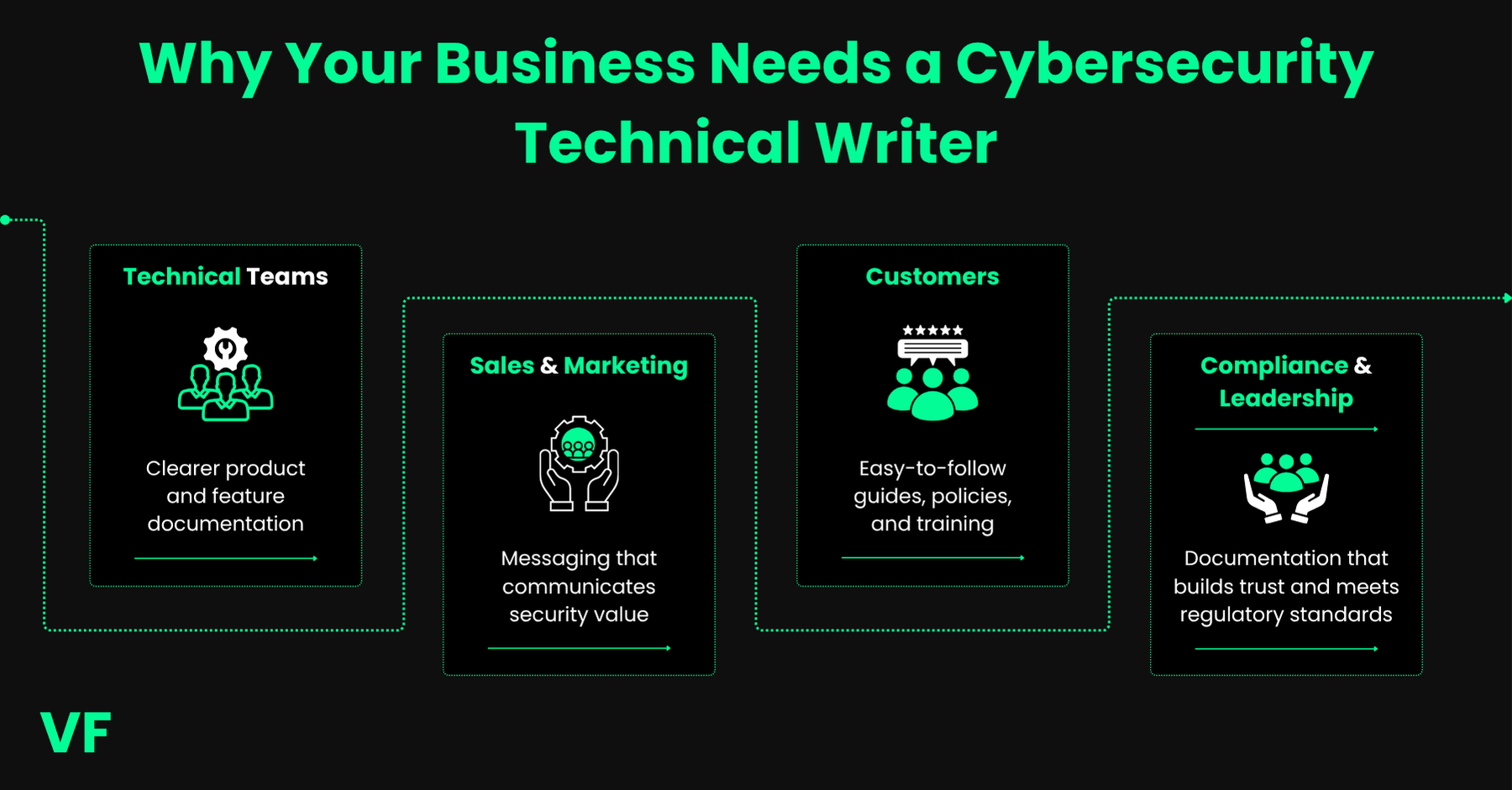
A skilled cybersecurity technical writer helps your business turn complex cybersecurity concepts into content that anyone can understand. From technical documentation and training materials to user manuals and technical reports, they make security and network security topics clear and approachable. Their expertise allows your organization to share accurate information, follow security measures, and stay compliant with regulations while protecting critical data and assets.
Beyond writing, technical writers connect technical and non-technical worlds. A great technical writer can communicate with engineers and customers alike, ensuring your company’s message stays clear and credible.
Through white papers, functional descriptions, and installation guides, they help your team showcase its knowledge, build trust, and reinforce your organization’s authority in the industry. In short, cybersecurity technical writers help businesses strengthen security, support success, and share their story with confidence.
Types of Content a Cybersecurity Technical Writer Can Create

Product Documentation & User Guides
A cybersecurity technical writer creates detailed product documentation and user manuals that explain how your software, systems, and security tools work. They translate complex cybersecurity concepts into content your customers and employees can easily follow, ensuring organizations stay compliant while using secure practices.
Compliance and Regulatory Documentation
Strong technical documentation is essential for meeting regulations and industry standards. Cybersecurity technical writers assist your business in documenting security measures, procedures, and system specifications that demonstrate compliance with frameworks such as SOC 2, NIST, and ISO, thereby keeping your organization audit-ready and confident.
Whitepapers & Case Studies
From in-depth white papers to real-world case studies, skilled technical writers produce content that builds credibility and authority. These pieces showcase your company’s expertise in cybersecurity, highlight results, and educate clients on how your team protects data and mitigates cyberattacks.
Knowledge Base Articles & FAQs
Cybersecurity writers create knowledge base articles, FAQs, and troubleshooting guides that empower users to find answers quickly. Whether explaining network security configurations or outlining best practices, this documentation helps both customers and internal teams in healthcare resolve issues efficiently.
Security Policies, Training Materials & Best Practices Guides
A great technical writer also crafts security policies, training materials, and best practices guides to help organizations strengthen their cybersecurity culture. These documents make it easier for businesses to communicate expectations, assess vulnerabilities, and keep everyone from executives to end users aligned on safe, effective security behavior.
Essential Skills to Look For in a Cybersecurity Technical Writer

A strong cybersecurity technical writer blends deep cybersecurity knowledge with clear, engaging communication. They understand frameworks like SOC 2, NIST, and ISO, and can turn complex security concepts into language anyone can follow. Skilled in tools like Markdown, Confluence, and GitHub, they create accurate, organized technical documentation that supports both technical teams and leadership.
The best technical writers are also great storytellers. They know how to research, interview subject matter experts, and verify details while keeping content human and approachable. With their mix of expertise and creativity, they make cybersecurity topics not only understandable but genuinely interesting helping your business communicate trust, accuracy, and confidence.
How to Evaluate a Cybersecurity Technical Writer’s Expertise

Hiring a great cybersecurity technical writer isn’t just about credentials it’s about finding someone who truly gets your message and audience. You want a writer who can turn complex cybersecurity concepts into content that’s accurate, engaging, and easy to follow. Here’s how to make that happen:
Ask for writing samples that show both clarity and technical depth. Look for examples of technical documentation, white papers, or training materials that explain tough security topics in a way non-experts can grasp.
Talk about their experience with cybersecurity clients or specific industries like finance or healthcare real-world exposure often means sharper insights and fewer rewrites. Give a mini test. Ask them to simplify a complex concept (like “zero trust” or “data encryption”) in a few sentences.
The best technical writers make hard ideas sound effortless. Review their work habits. Great writers are meticulous in checking how they handle accuracy, consistency, and organization across projects. Bonus points if they mention peer reviews, style guides, or version control.
A thoughtful evaluation process not only helps you spot expertise, but it also helps you find a partner who will make your cybersecurity message clear, credible, and genuinely impactful.
Best Practices for Working with a Cybersecurity Technical Writer
Provide Clear Briefs, Target Audiences, and Tone Guidelines
The more context you give, the better your cybersecurity technical writer can deliver. Start with a clear brief that outlines your goals, target audience, and preferred tone, whether it’s formal and compliance-focused or conversational and customer-friendly.
A good brief helps the writer tailor technical documentation so it resonates with the right readers and aligns perfectly with your organization’s voice and brand. Give Access to SMEs (Subject Matter Experts)
Your writer can’t create great cybersecurity content in a vacuum. Give them access to your internal SMEs, the engineers, analysts, and security pros who know your systems best. A short Q&A or working session with an expert can dramatically improve accuracy, reduce back-and-forth edits, and help the writer capture technical depth without losing clarity.
Establish Review Cycles with Technical and Non-Technical Reviewers
Set up a simple, consistent review process. Have both technical reviewers (to verify security and data accuracy) and non-technical reviewers (to ensure clarity and flow). This dual approach keeps your documentation balanced and technically precise, making it easy for customers and stakeholders to understand. It also helps everyone feel confident that the final content reflects the organization’s standards.
Set KPIs: Accuracy, Readability, Turnaround Time, and Impact
Treat your collaboration like a partnership. Define what success looks like in your proposals, whether it’s faster turnaround times, improved readability, or fewer editing cycles. Setting clear KPIs keeps everyone aligned and accountable. A great technical writer thrives with measurable goals and uses feedback to improve continuously, making your cybersecurity content sharper, smarter, and more effective over time.
Costs and Budget Considerations
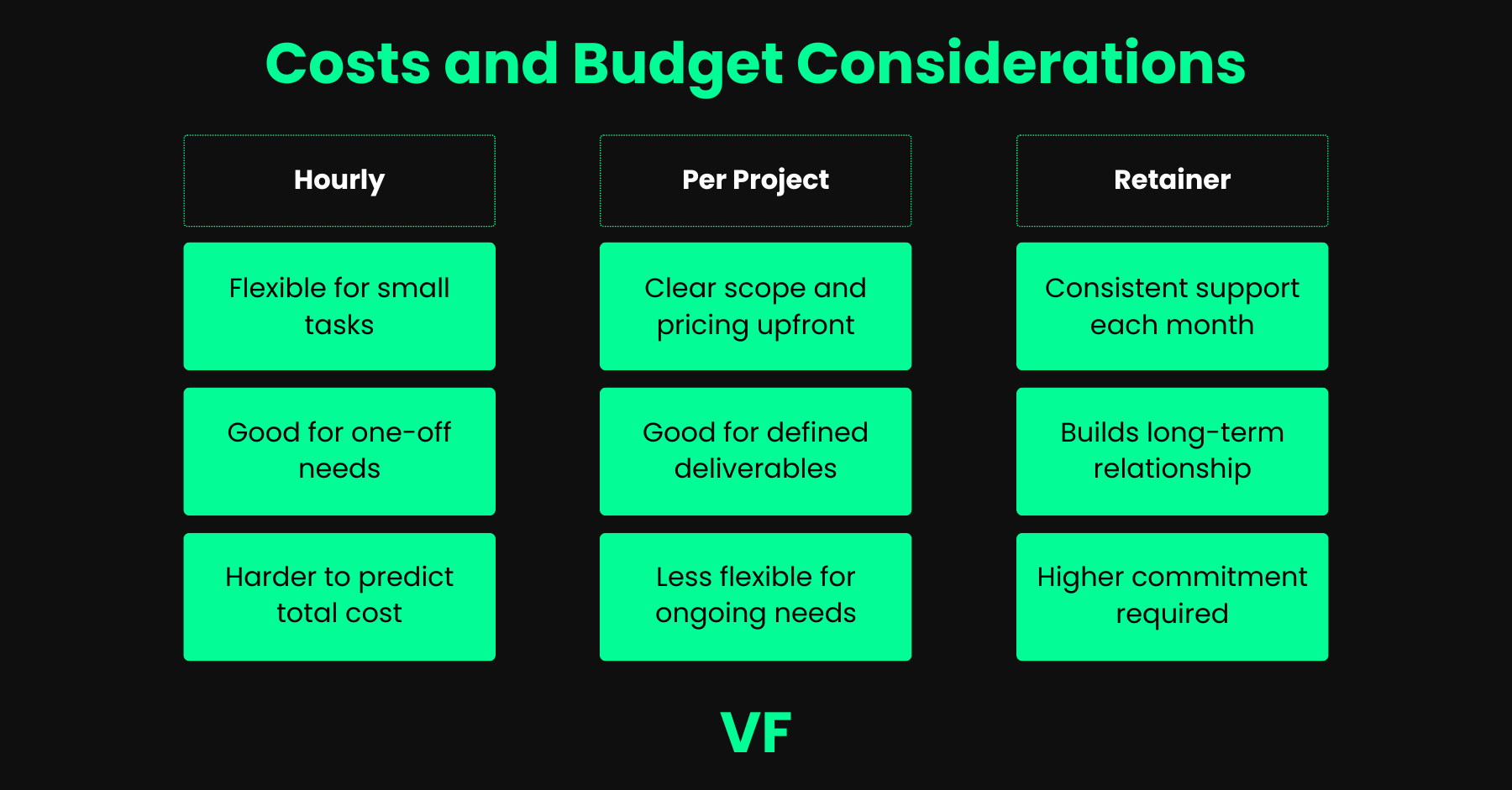
When hiring a cybersecurity technical writer, costs can vary based on experience, specialization, and the complexity of your documentation needs in defending against hackers. Understanding common pricing models helps you choose the best setup for your business and budget.
- Hourly Rate – Ideal for smaller or short-term projects like editing, training materials, or updates to existing technical documentation. You pay only for the time worked, giving you flexibility when the workload changes.
- Per Project – A great option for defined deliverables such as white papers, user manuals, or security reports. This model offers predictable costs and is easy to budget for.
- Retainer – Best for ongoing cybersecurity writing needs, especially if you produce continuous technical documentation, policies, or best practices content. You get priority access to the writer’s time and consistent quality month after month.
While rates may differ, investing in true cybersecurity writing expertise pays off. A skilled technical writer saves time, improves accuracy, and helps your organization avoid costly compliance mistakes, all while making your cybersecurity content clear, credible, and effective.
Conclusion
Hiring a great cybersecurity technical writer is about creating clarity, trust, and accuracy in every piece of content you share. The right writer bridges the gap between your technical experts and your audience, translating complex security concepts into content that builds confidence and drives action. When you know what you’re looking for the right mix of skills, focus, and industry understanding — you don’t just find someone to write; you find a partner who helps tell your story with precision and credibility. If you’re ready to strengthen your cybersecurity communications, book a discovery call and let’s talk about your content goals.
